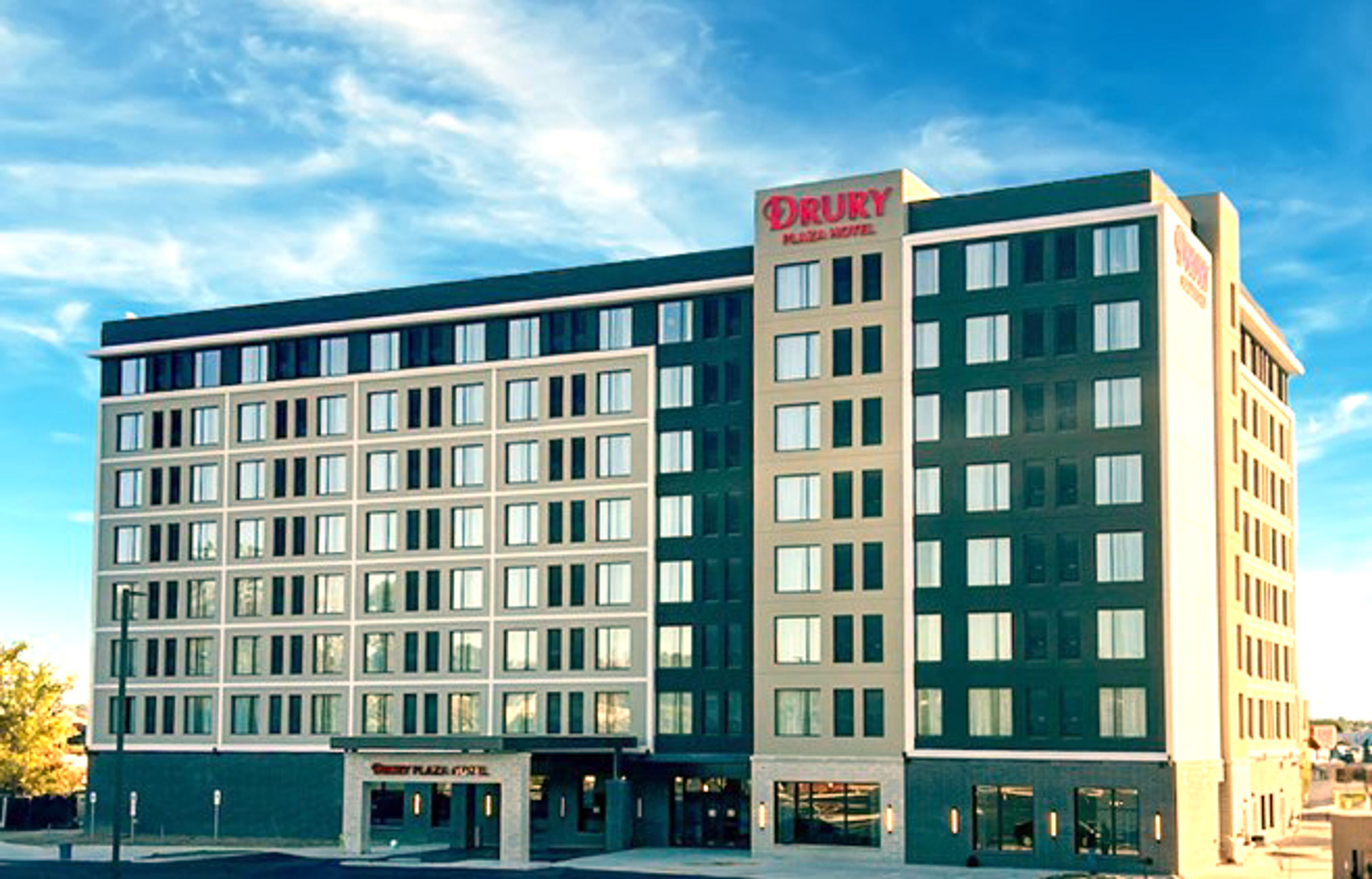Broadband makes digital difference for local market
It's been little more than a week since the firm where Larry Young works switched from its dial-up Internet service to a broadband provider, but the Cape Girardeau certified public accountant is already a convert. "It's a phenomenal difference," said Young, whose office recently got broadband Internet access known as DSL, or digital subscriber line...
It's been little more than a week since the firm where Larry Young works switched from its dial-up Internet service to a broadband provider, but the Cape Girardeau certified public accountant is already a convert.
"It's a phenomenal difference," said Young, whose office recently got broadband Internet access known as DSL, or digital subscriber line.
Walking out of the non-digital dark ages and into the high-speed world of broadband has made all the difference for Young, especially considering it's the midst of the hectic tax season.
"Normally, it would take 30 seconds to a minute to file someone's taxes online," he said. "Now, it's three to five seconds. That shaves off a lot of time."
Saves time, does it?
In our hurry-up, Palm Pilot world, that's the big selling point for broadband -- the always-open gateway to a new world of Internet services delivered at lightning-fast speed to homes, offices and businesses.
"If it saves you five seconds, 10 seconds, 20 seconds, it doesn't seem like much," said Gene Magnus, who owns Clas Computers in Cape Girardeau. "But if you save that 30 times a day, it adds up very quickly."
Broadband services include interactive purchasing, video-on-demand, remote interactive medical services, access to stored video materials and two-way teleconferencing. That opens up a world of possibilities to those in the fields of education, mass media, health care and business.
While the vast majority of the 143 million U.S. Internet users still use dial-up connections -- roughly 80 percent -- more and more people are becoming intrigued by the efficiency and swiftness of broadband.
In August 2000, pollsters said 5 percent of the population claimed to have something faster than dial-up services at home. But by September 2001, that figure had doubled. Private firms have predicted that there will be more than 35 million broadband customers by the year 2005.
"It's growing and everybody sees that it's growing," said Jerry Howe of Cape Girardeau-based Big River Telephone, which provides broadband. "But I'll tell you that we don't fully understand what kinds of demands are going to be placed on these high-speed networks. There's no holding back technology."
Dozens of firms have laid nearly 40 million miles of fiber-optic cable in the U.S., spending about $90 billion in the past five years alone.
Expanding in Cape
The story is no different locally. Last week, SBC Southwestern Bell announced that nearly 10,000 homes and small businesses in Cape Girardeau subscribe to its DSL service, which transforms copper telephone lines into powerful carriers of digital data.
This summer, Charter Communications plans to offer broadband through its cable modems, tapping into the same lines that deliver television pictures and sound. Charter has spent millions laying the groundwork and expects a big return.
"We believe there's a lot of pent-up demand," said Dave Miller, the vice president of Charter's outer Missouri operations. "Once people use high-speed, it's hard go back. We think that people are really going to become attached to the service in Cape Girardeau."
While it's just arriving in this area, cable is the most popular form of broadband nationally and DSL is second. But there are others: wireless, which is typically made up of on-the-ground systems, commonly called "fixed wireless systems," and satellite, which is provided by direct broadcast satellite companies like DirecTV and EchoStar, as well as new companies focusing only on Internet connections.
The appeal lies largely with the speed. Broadband blazes with quickness, eliminating what some jokingly call the "world wide wait" that users encounter with dial-up services. Broadband is typically 13 to 50 times faster or more than dial-up connections.
"High-speed broadband access to the Internet has become an integral part of today's on-the-go lifestyle," said Marsha Haskell, the local external affairs director for SBC Southwestern Bell.
Broadband is also "always on," meaning there's no need to dial in to an Internet service provider. Proponents say this eliminates waiting and tying up phone lines so that a person can chat on the phone and browse the Internet at the same time.
Vulnerable target
But there are drawbacks. The "always on" mode makes broadband especially vulnerable to computer hacker attacks. Broadband basically provides a fixed target, unlike traditional dial-up connections. It also allows hackers to work more quickly.
However, there are firewalls that can be purchased to keep hackers out.
Another drawback is that as fast as broadband is growing, only 10 percent of Americans have it. About 68 percent of them get it through cable television modems, some of which are owned by AT&T and Southwestern Bell, while 28 percent use DSL provided by regional telephone companies.
And as fast as the service provides information, it is still slow going to rural areas. DSL is usually only available about three miles from provider centers. After that the product begins to deteriorate, experts say.
Broadband is also more expensive. Dial-up typically can be bought for as little as $20 a month, while broadband service can be as high as $70.
The drawbacks are recognized by Congress.
The U.S. House of Representatives approved legislation last week that would make it easier for telephone companies to enter the broadband market more quickly.
The vote followed nearly three years of debate over how best to provide high-speed access to consumers. The fight had sparked an intense advertising and lobbying campaign, with both the regional Bell companies and AT&T spending tens of millions of dollars to sway lawmakers.
Supporters predicted the bill, sponsored by Reps. W.J. "Billy" Tauzin, R-La., and John Dingell, D-Mich., would help modernize the nation's communications system and spur economic growth.
Tauzin said it would ensure that "no corner of our country, no business, no child doesn't have access to this new technology. That's the future of where our economy lies."
Currently, companies like Southwestern Bell are required to allow competitors like Clas Computers and Socket Internet to access the telephone's companies' data transmission network. The Congressional bill would make that more difficult.
The rules, the Bells argue, should reflect competition defined broadly as that between different broadband technologies: phone, cable, wireless and satellite companies.
Opponents, however, said that it would allow the Bell companies to stomp out competitors by loosening regulations imposed as part of the 1996 Telecommunications Act.
The bill does, however, require that DSL broadband be made available to all of the phone companies' customers after five years.
"We're not against competition," Southwestern Bell spokesman Joe Izbrand said. "We just think this levels the playing field. These heavy regulations and bureaucracy are not parity. The cable companies aren't regulated like this, so they can maybe charge a few dollars less for their service."
The rules are so unfair that they've allowed cable -- which isn't regulated -- to capture 70 percent of the market, Izbrand said.
The bill is expected to have a tough fight in the Senate, but the debate highlights how lawmakers are struggling with the question of expanding broadband access to small businesses and ordinary citizens.
That leaves residents and business owners weighing whether or not they want broadband.
"We've looked into it," said Francis Ivanovich, technical manager of Nephrology Associates in Cape Girardeau. "This is mainly a convenience issue. For us, it's not a real high priority."
smoyers@semissourian.com
335-6611, extension 137
Connect with the Southeast Missourian Newsroom:
For corrections to this story or other insights for the editor, click here. To submit a letter to the editor, click here. To learn about the Southeast Missourian’s AI Policy, click here.






